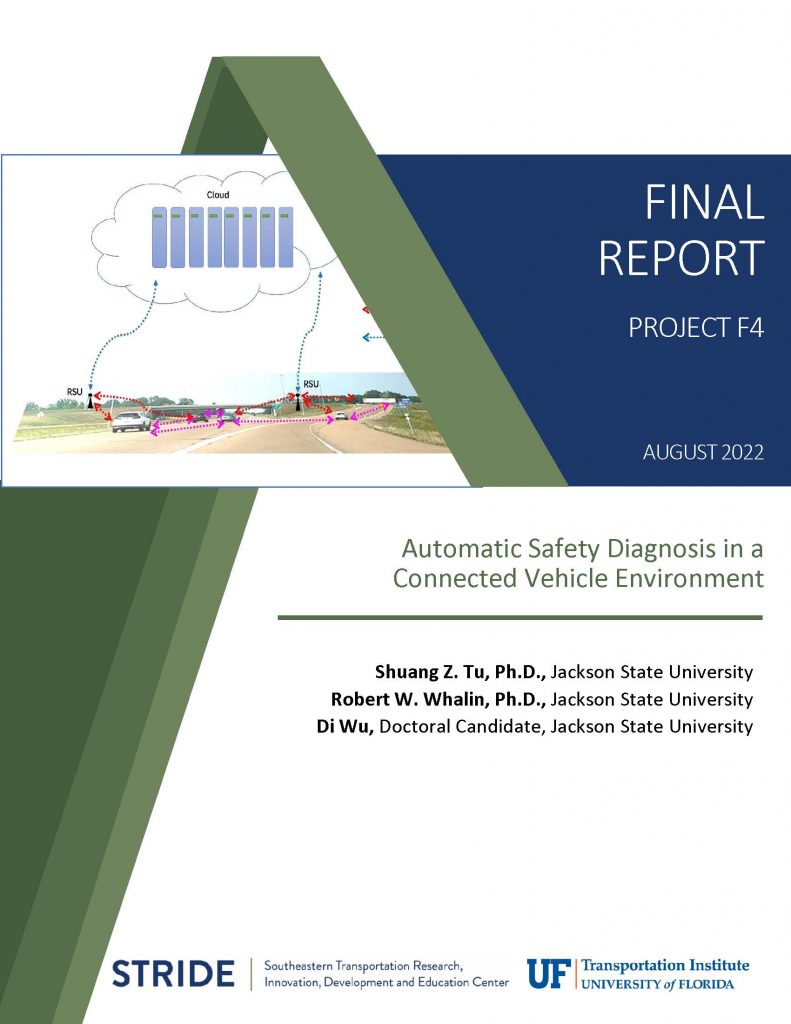Automatic Safety Diagnosis in a Connected Vehicle Environment
Research Team
Shuang Z. Tu, Ph.D., Jackson State University
Robert Whalin, Ph.D., Jackson State University
What is the current issue? Highway safety studies have traditionally relied on historical crash data. However, crashes are rare events and often crash-data is deficient in availability and quality. As an alternative, non-crash-data, which measures conflict and near-crash based on Traffic Conflict Technology (TCT), is being widely used. In the era of connected vehicles (CV), data is available for vehicle position, motion and instantaneous driving for information connectivity and massive Basic Safety Messages (BSMs) are being generated and exchanged between vehicles and infrastructures. Driving behavior differs considerably among individuals and each driver has her/his own driving patterns, among which the most important feature for safety diagnosing is threshold segmenting normal and abnormal/aggressive driving status. Due to the tremendous volume and complexity, it is not realistic to store all the BSMs generated in CV into the data center. Extensive research has been dedicated to the big data of BSMs but not yet on individual level for near-crash detection. This project will explore what information imbedded in BSMs is needed to be stored, how to extract it and how to process it for real-time traffic safety diagnosis combining the TCT technology.
What will the research produce? The research team will construct a computational pipeline of Near-crash Diagnoses System to process the BSMs generated in the CV environment to identify near-crash events on the individual level. The Next Generation Simulation (NGSIM) data of the Federal Highway Administration will be utilized for model validation.
